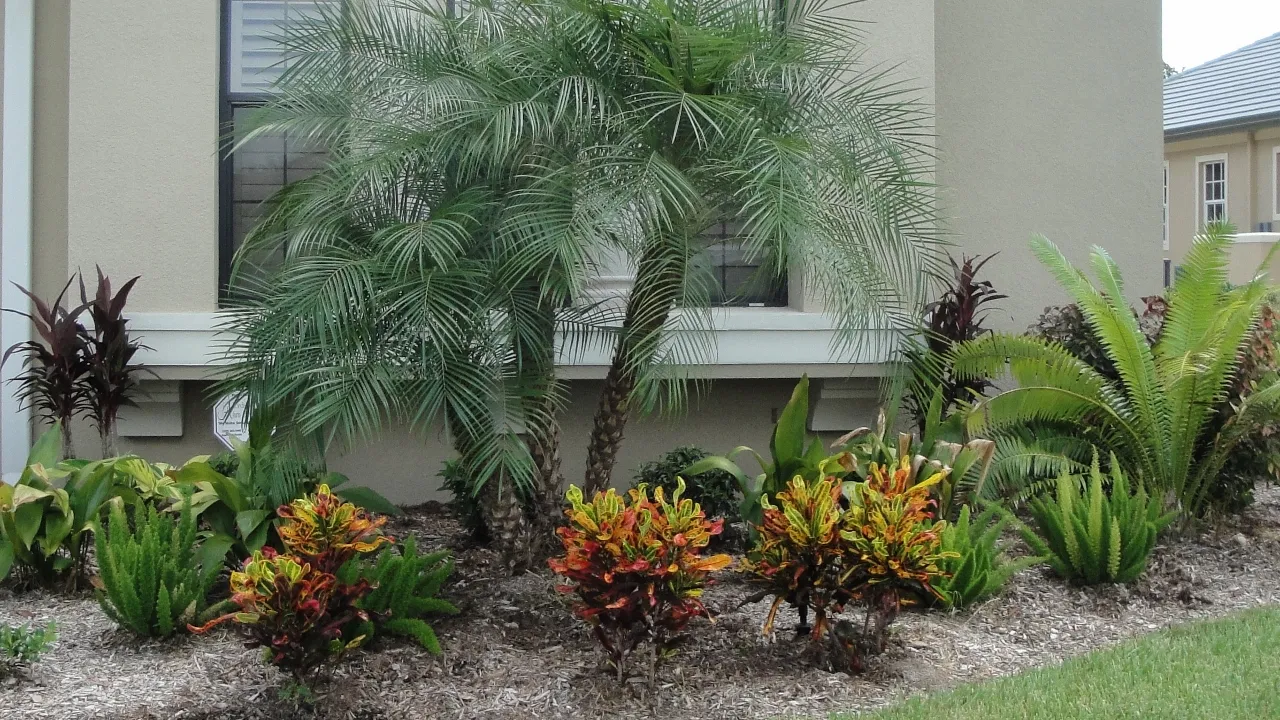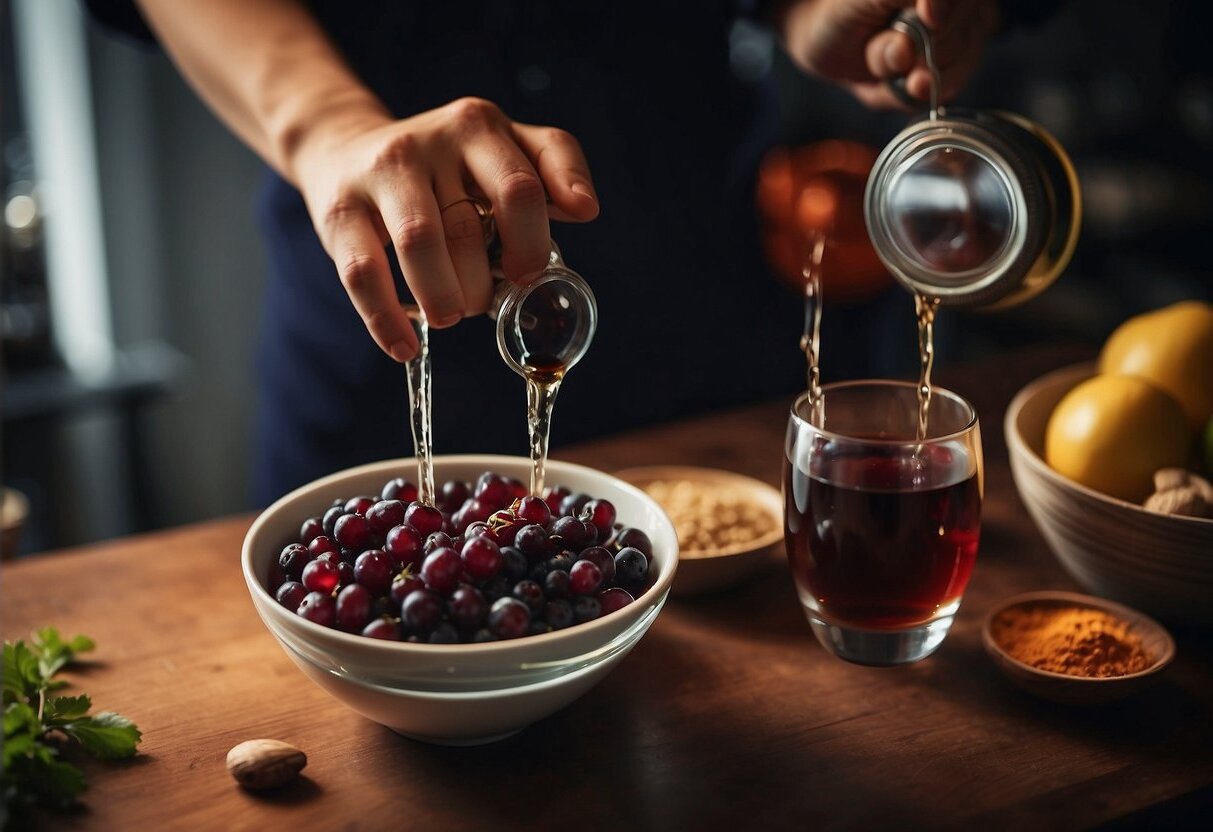
When it comes to beautiful and versatile indoor plants, the Pygmy Date Palm (Phoenix roebelenii) is a popular choice among plant enthusiasts. This elegant palm tree, native to Southeast Asia, has become a favorite in both residential and commercial spaces due to its compact size and stunning appearance.
However, there is much more to the Pygmy Date Palm than meets the eye. In this article, we will uncover 19 captivating facts about this remarkable plant, shedding light on its fascinating characteristics and benefits. From its unique ability to thrive in low-light conditions to its contribution to improved indoor air quality, the Pygmy Date Palm proves to be both visually appealing and environmentally beneficial.
So, whether you already own a Pygmy Date Palm or are considering adding one to your plant collection, get ready to discover some interesting insights about this captivating plant species.
Key Takeaways:
- The Pygmy Date Palm, native to Southeast Asia, is a slow-growing, drought-tolerant plant with ornamental value. It’s a versatile, low-maintenance choice for both indoor and outdoor spaces, symbolizing beauty and endurance.
- With its edible fruits, air-purifying qualities, and adaptability to container gardening, the Pygmy Date Palm adds a touch of elegance and biodiversity to any environment. It’s a resilient, low-pruning plant with cultural significance in certain traditions.
Native to Southeast Asia
The Pygmy Date Palm, scientifically known as Phoenix roebelenii, is a species of palm tree native to Southeast Asia. It is commonly found in countries such as Thailand, Malaysia, and Indonesia.
Miniature Palm Tree
The Pygmy Date Palm is a small-sized palm tree that typically grows to a height of around 6 to 10 feet. It is known for its slender trunk, graceful fronds, and compact form, making it a popular choice for landscaping and indoor decoration.
Slow Growth Rate
This fascinating palm tree species has a slow growth rate, with an average increase in height of only 1-2 feet per year. Its slow growth makes it a low-maintenance plant that can thrive in various environments.
Ornamental Value
The Pygmy Date Palm is highly valued for its ornamental qualities. Its gracefully arching fronds and dense foliage create an attractive display, making it a favorite choice for gardens, parks, and urban landscapes.
Drought Tolerant
One of the remarkable characteristics of the Pygmy Date Palm is its high tolerance to drought conditions. It has adapted to survive in arid environments, making it a resilient plant that can withstand periods of water scarcity.
Versatile Habitat
This palm species can thrive in a variety of habitats, including both indoor and outdoor environments. It can be grown in pots, containers, or planted directly in the ground, making it a versatile choice for landscaping projects.
Edible Fruits
Despite its small size, the Pygmy Date Palm produces edible fruits. The small, dark red or blackish dates have a sweet taste and are often used in culinary preparations, particularly in Southeast Asian cuisine.
Low Light Tolerance
The Pygmy Date Palm exhibits excellent tolerance to low light conditions, making it suitable for indoor cultivation. It can thrive in spaces with limited natural light, making it a popular houseplant choice.
Cold Sensitivity
While the Pygmy Date Palm can tolerate a wide range of temperatures, it is sensitive to cold weather. It prefers warm and tropical climates and may require protection or relocation during freezing temperatures.
Easy Propagation
Propagating Pygmy Date Palms is relatively easy. It can be propagated from seeds or offsets produced by the mature tree. This simplicity makes it accessible for plant enthusiasts to grow and expand their collection.
Ideal Poolside Accent
The Pygmy Date Palm is often used as an accent plant near swimming pools or water features. Its elegant and tropical appearance adds a touch of relaxation and luxury to any poolside setting.
Natural Air Purifier
The Pygmy Date Palm is known for its ability to purify the air by removing toxins and pollutants. Its foliage acts as a natural filter, making it a beneficial addition to indoor spaces, particularly for improving air quality.
Non-Invasive Roots
The Pygmy Date Palm has non-invasive roots, making it a safe choice to plant near structures, pathways, and other plants. It does not cause damage or disrupt the surrounding landscape, ensuring a harmonious garden ecosystem.
Resilient to Pests
This palm tree species is relatively resistant to pests and diseases. However, occasional pests like spider mites or scale insects may infest the fronds. Regular inspection and appropriate treatment can help maintain its health.
Low Pruning Requirements
The Pygmy Date Palm requires minimal pruning to maintain its neat appearance. Removing dead fronds and trimming the lower leaves helps promote healthy growth and prevents the accumulation of debris.
Symbolic Meaning
In many cultures, the Pygmy Date Palm symbolizes beauty, elegance, and endurance. It is often associated with celebrations and represents prosperity, making it a popular choice for decorative purposes during festive occasions.
Adaptability to Container Gardening
The compact size and slow growth rate of the Pygmy Date Palm make it suitable for container gardening. It can thrive in pots and containers, allowing individuals with limited garden space to enjoy its beauty and benefits.
Wildlife Habitat
The Pygmy Date Palm creates a habitat for various wildlife species. Birds, insects, and small animals are attracted to its foliage and feed on the fruits, contributing to the biodiversity and ecological balance in their surroundings.
Cultural Significance
In certain cultures, the Pygmy Date Palm holds cultural and religious significance. It is used in rituals, traditional ceremonies, and as part of landscape designs in temples, palaces, and sacred spaces.
Conclusion
The Pygmy Date Palm is truly a fascinating plant with its unique characteristics and versatility. From its compact size and attractive appearance to its ability to thrive in various environments, it is certainly a great choice for both indoor and outdoor gardeners.
Whether you want to add a touch of tropical elegance to your home or create a beautiful oasis in your backyard, the Pygmy Date Palm is an excellent option. Its ability to withstand adverse conditions and its low-maintenance nature make it ideal for beginners and seasoned gardeners alike.
With its lush foliage, graceful form, and interesting facts, the Pygmy Date Palm is sure to captivate anyone who encounters it. So why not consider adding this enchanting plant to your collection and enjoy the beauty and charm it brings to your space.
FAQs
1. Can the Pygmy Date Palm be grown indoors?
Yes, the Pygmy Date Palm can be grown indoors as it tolerates low light conditions. However, it is important to provide it with sufficient light to maintain its lush appearance.
2. How often should I water the Pygmy Date Palm?
The Pygmy Date Palm prefers consistently moist soil. Water it when the top inch of soil feels dry, but be careful not to overwater as it can lead to root rot.
3. Does the Pygmy Date Palm require pruning?
While the Pygmy Date Palm does not require regular pruning, removing dead or damaged fronds can help improve its appearance. Use clean, sharp pruning shears and avoid cutting into the trunk.
4. What type of soil is best for the Pygmy Date Palm?
The Pygmy Date Palm prefers well-draining soil enriched with organic matter. A mixture of peat moss, perlite, and sand can provide the ideal growing medium.
5. Can the Pygmy Date Palm tolerate cold temperatures?
The Pygmy Date Palm is moderately cold-hardy and can tolerate temperatures as low as 25°F (-4°C) for a short period. However, it is best to protect it from frost and extreme cold by covering it or bringing it indoors.
Pygmy Date Palms captivate with their miniature size and adaptability, making them perfect for indoor gardening enthusiasts seeking a unique addition to their home. These slow-growing, ornamental palms also thrive in container gardening, allowing you to create a lush, tropical atmosphere on your balcony or patio. If you're fascinated by other tropical plants that bring a touch of exotic beauty to your space, consider exploring the world of bromeliads, which offer a stunning array of colors and shapes to complement your Pygmy Date Palm.
Was this page helpful?
Our commitment to delivering trustworthy and engaging content is at the heart of what we do. Each fact on our site is contributed by real users like you, bringing a wealth of diverse insights and information. To ensure the highest standards of accuracy and reliability, our dedicated editors meticulously review each submission. This process guarantees that the facts we share are not only fascinating but also credible. Trust in our commitment to quality and authenticity as you explore and learn with us.


